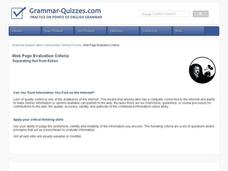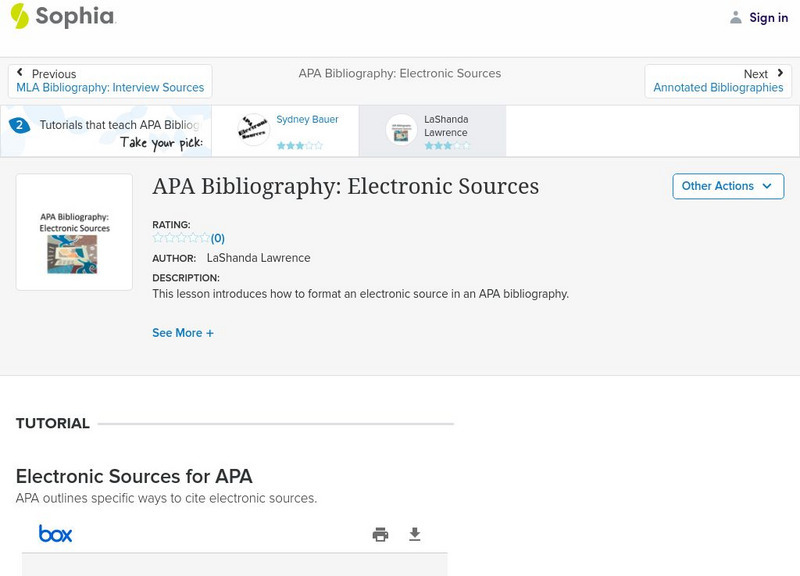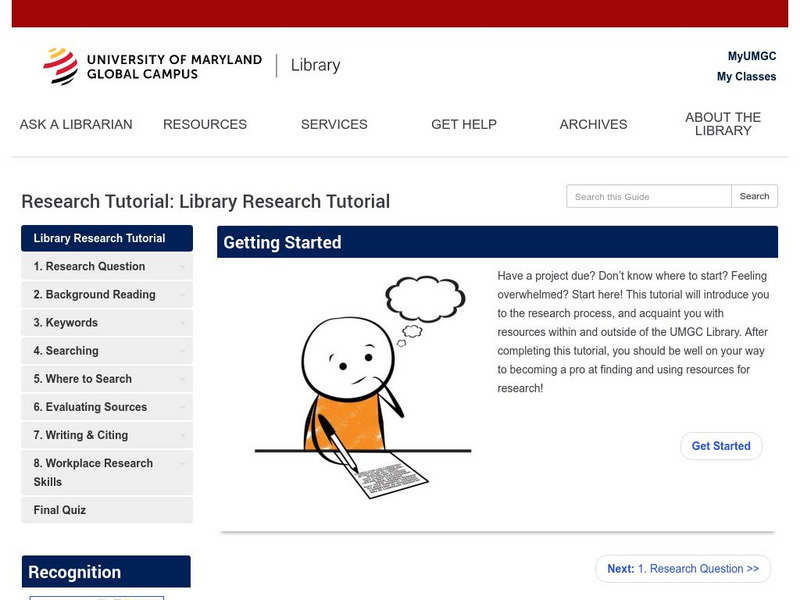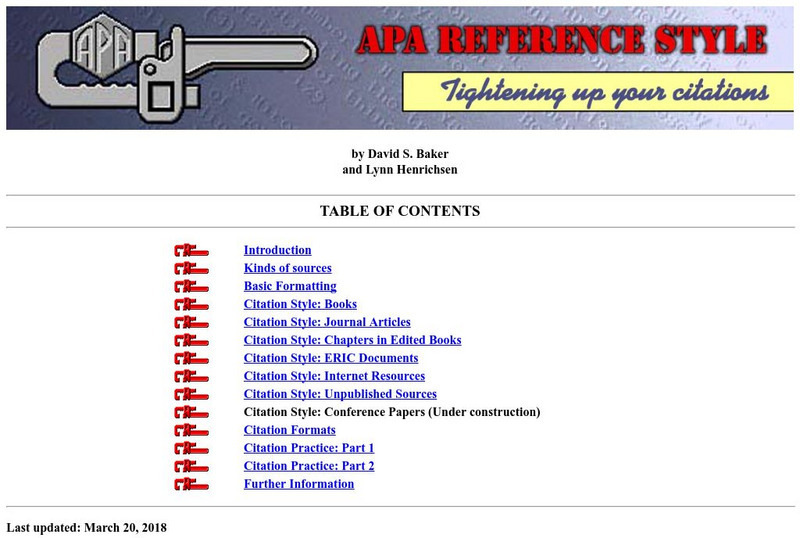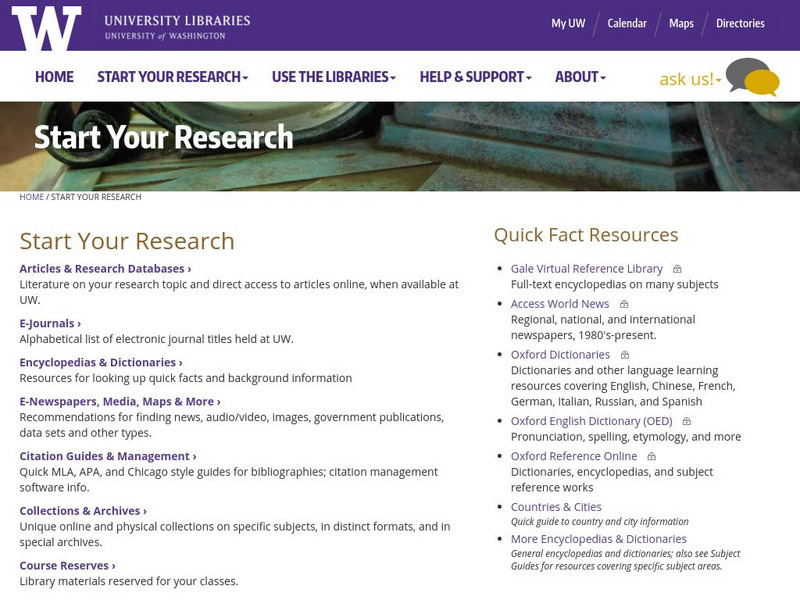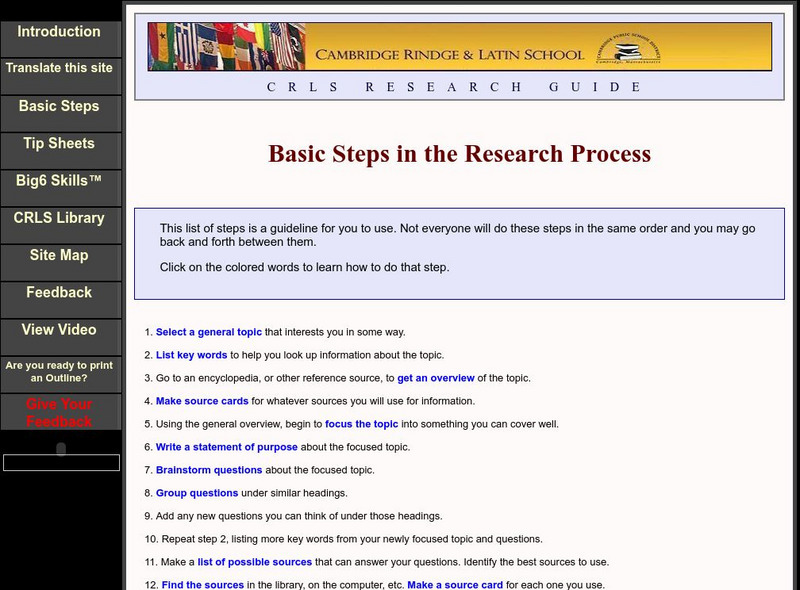Curated OER
Treated Lumber and Alternatives
Students copy the KWL chart for Treated Lumber and Alternatives. They include the provided websites. Students work with a partner to research the use of CCA lumber and its environmentally friendly substitutes. They create a PowerPoint...
Curated OER
Leadership and FCCLA
Students identify and explore ways being an FCCLA officer can improve leadership skills. In this FCCLA leadership lesson plan, students research the requirements to become an FCCLA officer using the national bylaws. Students then prepare...
Curated OER
Welcome Bags
Students identify ways to make new students feel welcome. In this new students activity, students work with school guidance counselors to identify ways to welcome new students to their school. Students create welcome bags for the new...
Curated OER
Separating Fact from Fiction
In this English grammar learning exercise, students study a chart of definitions and pointers. Students then read 5 explanations as to how to separate fact from fiction.
Other
University of Wisconsin Oshkosh: Classroom Connect: Citing Internet Sources
This page offers information specifying how to cite e-mail, World Wide Web sources, online images and sounds, newsgroups, and online video clips. Examples are included.
Online Writing Lab at Purdue University
Purdue University Owl: Types of Sources
A list and explanation of different types of print and online sources. W.11-12.8 Sources/Integrate/Cite
Other
Oslis: Learn How to Do Research, Find Information, Cite Sources
Excellent site outlining each step for Internet research at the middle school and secondary levels. This site focuses on a variety of information literacy topics, from how to research, find and evaluate information, and cite sources....
Information Fluency
Imsa 21 Cif Portal: Online Citation Wizards
Citing Internet resources can be painless with this user-friendly wizard. Choose the type of Citation Standard (APA, Chicago, CSE, Harvard, or MLA) and fill in your information to create a citation. The 21st Century Information Fluency...
Sophia Learning
Sophia: Apa Bibliography: Electronic Sources: Lesson 2
This lesson introduces how to format an electronic source in an APA bibliography. It is 2 of 2 in the series titled "APA Bibliography: Electronic Sources."
Other
Oslis: Research Process
Excellent site outlining each step for Internet research for grades 6-12. This site focuses on writing a research paper from selecting a topic through to the final paper. Click on Cite My Sources to get the electronic citation machines....
Other
Umuc: Secrets of My Research Success
This 35-minute interactive tutorial models the research process via the story of Quentin, a UMUC student. It takes him through the various research process steps: understand how to locate background information on his topic by showing...
Online Writing Lab at Purdue University
Purdue University Owl: Mla in Text Citations: The Basics
This site offers the basic rules and guidelines for creating MLA in-text citations including print and non-print sources with examples of each type presented.
Other
Oregon School Library Information System
An excellent site that supports school libraries which includes tools for both elementary and secondary students. Choose the appropriate level to find resources on citing sources, research process, choosing research resources, finding...
REMC Association of Michigan
Remc Association of Michigan: 21 Things4 Students: 9. Search Strategies
In this learning module, students learn how to: use Michigan eLibrary, boolean logic, and dictionary.com; use search engines; choose reputable websites; cite sources; and differentiate between real and fake information. Includes an...
Brigham Young University
Brigham Young University: Apa Reference Style
Good definition of what APA style is and why it is so important. Links to citation styles for journals, chapter, books, ERIC documents, & internet documents. Great reference!!
University of Toronto (Canada)
University of Toronto: Standard Documentation Formats
Documenting Internet resources is becoming standardized. You'll find some of the basics here, plus links to more detailed guidelines now included in respected academic style guides. L.9-10.3a Standard Format, W.11-12.6 Technology,...
Other
University of Washington Libraries: Starting Research
If you need help knowing where to start your research, or if you're a teacher looking for a way to help students understand the research process, this resource is terrific. Interactive tutorials on a number of topics offer review quizzes...
Cambridge Rindge & Latin School
Cambridge Rindge & Latin School: Basic Steps in the Research Process
A comprehensive list of the important steps in researching and writing a report or project. Includes links to tip sheets for each step.
Common Sense Media
Common Sense Media: Education: My Creative Work (K 2)
Students learn the basics - title, name, and date - for crediting creative work. They discuss the importance of citing work, as well as recognizing that they should give themselves proper credit so that others can attribute their work...
Other
Plagiarism.org: What Is Plagiarism?
This resource created for educators who are concerned over the growing problem of Internet plagiarism, offers a detailed overview of what plagiarism is, why students plagiarize, different types of plagiarism, and some plagiarism...
Alabama Learning Exchange
Alex: Poetry Slam
Students will locate a poem of their choice from a designated website to interpret. Students will then search the Internet for performances of the poem they select. In addition to creating a written interpretation of the poem, including...
Goodwill
Gcf Global: Use Information Correctly
In this tutorial, learn how to use information correctly to create quality content while protecting others' intellectual property.





